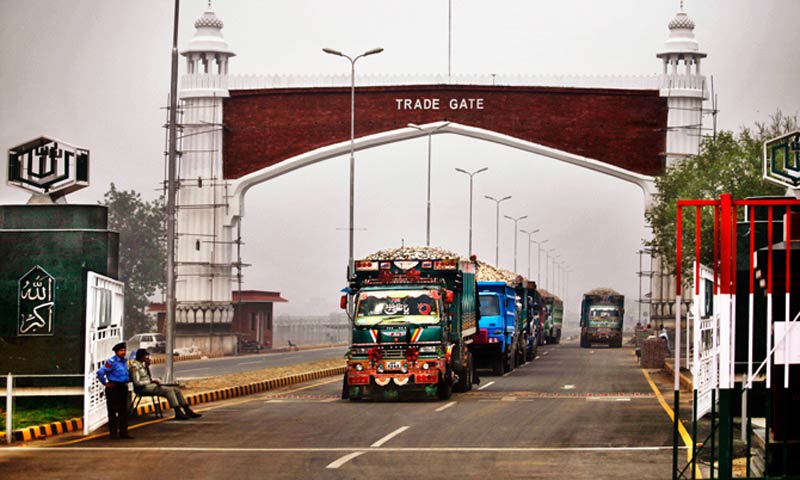Islamabad: The mutual distrust characterizing Pak-Afghan relations cast its shadow on trade talks between the two countries on Monday as Islamabad refused to acquiesce to Kabul’s demands of allowing it throughway to New Delhi via the Wagah border.
During the tenth session of the Pakistan-Afghanistan Joint Economic Commission (JEC) in Islamabad, Finance Minister Ishaq Dar and his Afghan counterpart Eklil Ahmad Hakimi could only agree on a new framework to complete already agreed upon bilateral economic goals without achieving a breakthrough on border access.
Officials in the Economic Affairs Division said Kabul had sought access to New Delhi for its trucks via the Wagah-Attari border crossing. But Islamabad, citing security issues, denied the request. In response, Afghanistan declined Pakistan’s request for access to the Tajikistan border.
Pakistan also declined Afghanistan’s requests to allow its trucks to load cargo as they returned from Wagah to Kabul. Under the current regulations, Afghan trucks transporting goods can only drop off their cargo at Wagah and return empty to Torkham.
“We want access to South Asia, and Pakistan wants access to Central Asia, and we discussed how to gradually remove the bottlenecks [to achieve this shared vision],” Hakimi said as he and Dar addressed a news conference after the meeting.
Hakimi complained that there were gaps in implementing the 48-point agenda agreed upon between Afghanistan and Pakistan when President Ashraf Ghani visited Islamabad.
The news conference had been delayed by an hour after the Afghan side reportedly raised last-minute objections over the language of a joint statement. This had followed by troubles over holding the JEC, which had been postponed once, and its duration was cut down from two days to one.
The Afghan finance minister added that giving each other access to their neighboring countries was ‘an important matter’.’Dar also acknowledged this common objective but noted that security issues had slowed progress in implementing certain elements. “The security issue will remain a top priority for our agenda.”
The finance minister reiterated Pakistan’s support for Afghan-owned and Afghan-led peace processes to improve the security situation in the region as he vowed to take forward the economic agenda of cooperation between the two countries.
However, the meeting was not a complete loss, as they discussed a project for Pakistan to import 2,000 megawatts of electricity from Turkmenistan via Afghanistan. A road project for expanding the western route under the China-Pakistan Economic Corridor (CPEC), which would see Gwadar connect to Herat via Khuzdar.
Dar said a regional connectivity road project proposed from Herat to Khuzdar and Gawadar was also discussed. The project, if implemented, would expand the western route under China-Pakistan Economic Corridor (CPEC) to Afghanistan.
In this regard, Dar said both sides had agreed to establish various Joint Working Groups (JWGs) on energy, trade, commerce, development projects executed in Afghanistan, and railway and road projects.
Hakimi meets Nawaz
Later, Hakimi met with Prime Minister Nawaz Sharif at the PM House, where they discussed issues about bilateral relations, particularly trade.
While expressing satisfaction at the resumption of incomplete projects in Afghanistan, Nawaz reiterated the commitment to increase bilateral trade volume to $5 billion by 2018. He added that Islamabad would extend all possible support to Kabul to accomplish tasks in the infrastructure and energy sectors.
Hakimi said the early realization of development and power projects would be a win-win situation for the region. He added that Afghan President Ashraf Ghani shares the PM’s vision of economic development in the region, Through regional connectivity.






